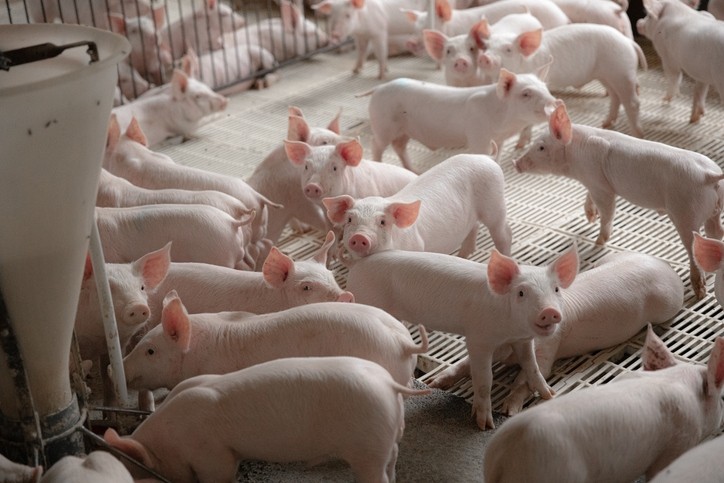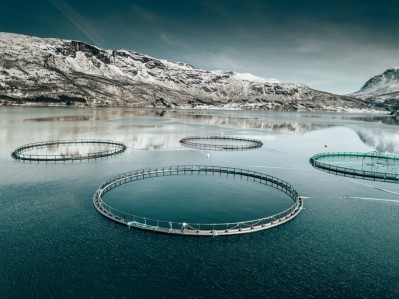Rising from the ashes: EasyMining champions recycled feed phosphorus from sewage sludge

In 2014, EasyMining patented its Ash2Pos process for the recovery of phosphorus from incinerated sewage sludge ash. Ever since, the company has been working towards the commercialization of RevoCaP - the non-crystalline calcium phosphate that is the product of this circular phosphorus recovery solution - as a sustainable feed ingredient.
“To assess RevoCaP's viability, we have initiated several collaborative projects. Our findings show that this recycled feed phosphate is highly digestible for animals such as pigs and chickens and meets all quality requirements set by feed legislation.
"Furthermore, we have thoroughly assessed the entire value chain - from sewage sludge to finished feed phosphate - to ensure it is free from relevant pathogens, including prions,” Sara Stiernström, product manager at EasyMining, told FeedNavigator.
The next project is a research study in collaboration with Aarhus University and Danish feed company DLG.
Determining RFP digestibility in piglets
The aim of the project is, for the first time, to assess the digestibility of recycled feed phosphate (RFP) in weaned pigs and to compare RFP with other common phosphorus sources, such as di-calcium phosphate (DCP) and mono-calcium phosphate (MCP).
“The digestive capacity of pigs is compromised around weaning and is not as efficient as in older pigs. Therefore, the phosphorus digestibility RFP, as determined in a previous study with growing pigs, may not be the same in weaned pigs,” Sara Stiernström, product manager at EasyMining, told FeedNavigator.
She added that the previous study only compared the digestibility of RFP to mono-calcium phosphate of rock origin, not di-calcium phosphate, which is commonly added to feed formulations in Europe.
Sixty-four weaned pigs (28 days old) of the same sex will be fed one of four experimental diets: a standard basal diet without added phosphorus (low phosphorus semisynthetic diet based on maize starch, potato protein and dextrose with no added phosphorus); a basal diet with RFP; a basal diet with MCP; and a basal diet with DCP. The trial will run from August to October, with results expected by April 2025.
“The hypothesis is that the phosphate of RFP has comparable digestibility to phosphate of CDP and slightly lower phosphate digestibility than MCP phosphate in weaned pigs,” Stiernström said.
Building a case for EU approval
EasyMining says this research is pivotal for potential EU approval of RFP as a sustainable feed ingredient.
Currently, the EU depends on imports from mines located outside Europe for its phosphorus supply. Recycling phosphorus from sewage sludge ash would enable localized production, as well as promoting a circular approach to phosphorus management. However, current EU legislation prevents the use of feed additives and raw materials derived from manure and municipal or industrial wastewater.
“Irrespective of quality and safety, such chemicals are currently excluded from use in feed according to Regulation 767/2009, which constitutes an unnecessary obstacle to the nutrient circular economy,” said Stiernström.
EasyMining is pushing for legislative change and will be leveraging the results of the study for this purpose.
“We are using the results from the projects to demonstrate the safety and performance of our product…In general, more documentation on the nutritional value of RFP is needed as a basis for potential future approval of this source of feed phosphate,” noted Stiernström.
Canadian market open for business
In the meantime, EasyMining is making inroads in Canada, where the regulatory climate is less hostile.
It is building two phosphorus recovery plants, in Schkopau, Germany, and Helsingborg, Sweden, which are expected to be on-stream in 2027 and 2028, respectively. Both will have the capacity to process 30,000 metric tons of sewage sludge ash per year, resulting in the production of 15,000 tons of RevoCaP (around 2,600 tons of phosphorus) annually.
Initially, this will be exported to Canada, where EasyMining has a partnership with Canada Friesen Company. It is also investigating the potential in Canada for Ash2Phos plants and has plans for more plants in Europe.
EasyMining has established partnerships with feed producers DLG and Lantmännen in Europe.
Ash2Phos: The process explained
The Ash2Phos process consists of several successive chemical reactions that bring about the separation of ash from incinerated sewage sludge into elements of interest and detoxify the products. It involves three steps: an acidification step; an alkaline step whereby intermediate products are produced; and a conversion step whereby the intermediates are processed into final products.
EasyMining claims this results in RFP that is both stable and safe. The incineration step before the Ash2Phos process ensures that the ash does not contain organic contaminants, microplastics, parecycthogens or prions, and the heavy metals are separated out during the process.















